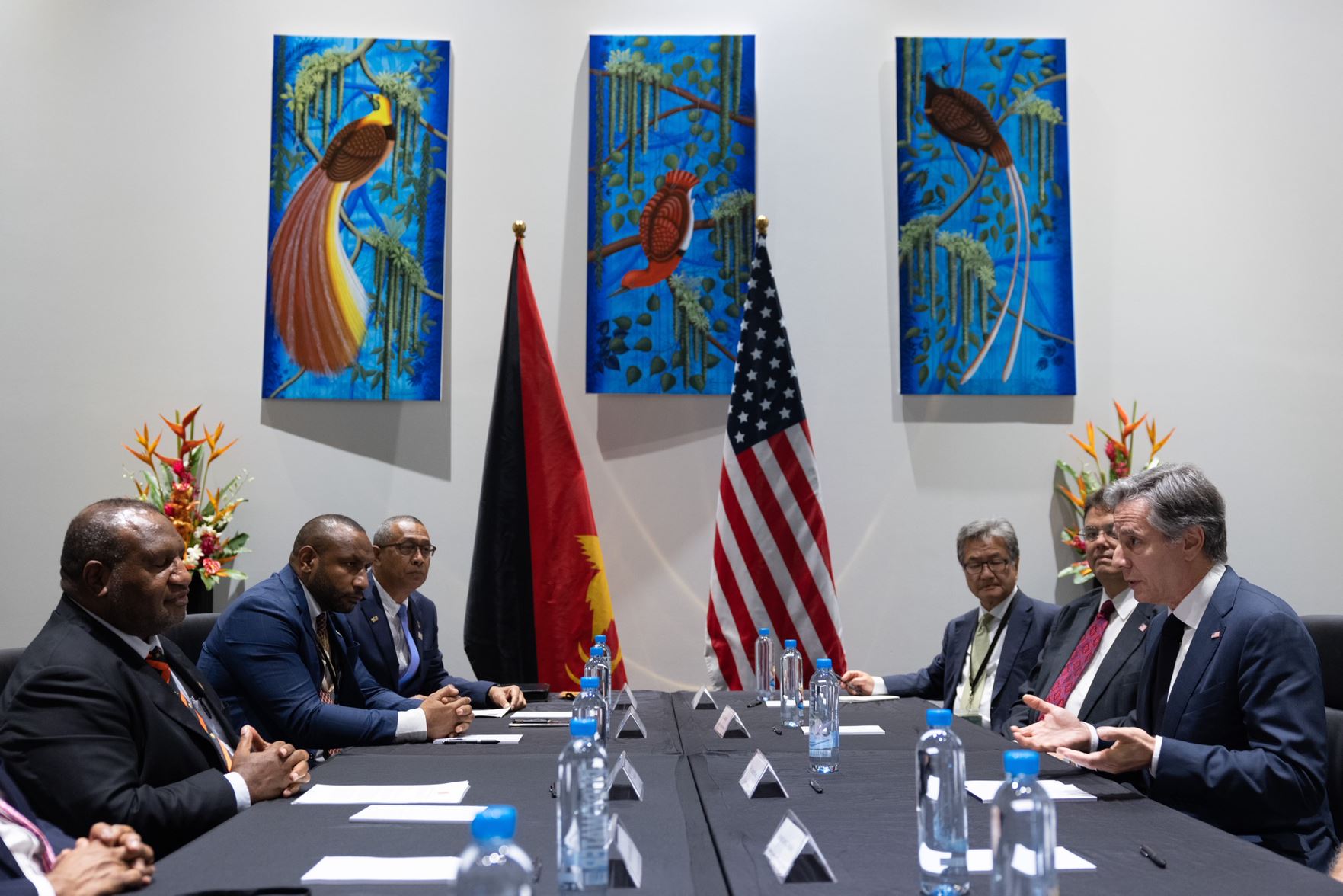The BGA Papua New Guinea Team, led by Senior Adviser Amb. Ian Kemish, recently wrote an update on a series of high-level engagements in Papua New Guinea (PNG), including the second U.S.-Pacific Summit.
Context
- In a setback for U.S. diplomatic prestige in the Pacific, U.S. President Joe Biden canceled his much-anticipated May 22 visit to PNG to deal with a domestic debt-ceiling crisis. The visit would have been historic as the first of a sitting U.S. president to a Pacific Island country.
- Biden called PNG Prime Minister James Marape, assuring him that the United States will arrange another Pacific Island leaders’ summit and that Marape will be hosted in an official state visit to the United States sometime in the future. Biden informed Marape that Secretary of State Antony Blinken would travel to PNG in his place.
Significance
- Biden’s convening of the second U.S.-Pacific Summit — and the first to be held in the Pacific — was an important part of the U.S. strategy to enhance relations with the region and counter Chinese efforts to deepen its own engagement and influence. This includes bolstering U.S. economic and development cooperation and Washington’s presence in the region.
- Blinken signed a defense cooperation pact with PNG during his visit and said Washington will significantly deepen its partnership with PNG. He pledged $45 million in new funding to support PNG in areas such as defense, security, climate change mitigation, tackling transnational crime and addressing HIV and AIDS.
Implications
- PNG remains in the international spotlight as host to a slew of world leaders in a clear display of its geostrategic importance. Against the backdrop of growing competition in the region, leaders from India, Australia, New Zealand and Indonesia have visited or will visit PNG as they move to shore up ties with the most populous and strategically significant country in the Pacific.
- Blinken told Marape that deepening U.S. relations with PNG will lead to the expansion of U.S. business in PNG and bring billions of dollars’ worth of new investment to the country. While investor confidence is largely centered around domestic political stability and the ease of doing business, geopolitical and regional stability risks will continue to trend upward.
We will continue to keep you updated on developments in Papua New Guinea. If you have any questions or comments, please contact BGA Senior Advisor Ambassador Ian Kemish at ikemish@bowergroupasia.com.
Best regards,
BGA PNG Team

























